No doubt 2018 will be as unpredictable as 2017.
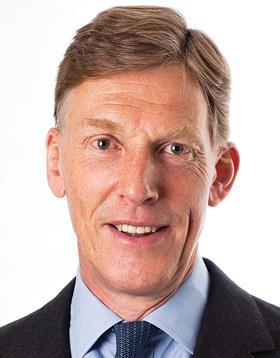
So what would a Corbyn government mean, should Theresa May’s fragile grip on power weaken so much that, perhaps through a series of debilitating parliamentary defeats, she is forced to call another general election?
Would Corbyn and his team, upon winning power, veer towards the centre, forced to do so by the constraints of the international money markets and with corporates and individuals paying more tax but otherwise life carrying on as normal? Perhaps similar to the Blair/Brown government?
Or will they pursue a far-left agenda and are Corbyn and McDonnell currently exercising a disciplined determination to hide their more extreme opinions from public view? Let’s look at the main players.
Corbyn was the most rebellious Labour MP during the three Labour governments between 1997 and 2010, defying the whip 428 times. He is pro-Venezuela and still supports the Maduro regime, which is in economic chaos and defaulting on its international debt.
Corbyn supports the policies proposed by the left-wing Institute of Employment Rights, which campaigns for reform of the Conservative trade union legislation of the 1980s that was left untouched by the Blair/Brown government. This would herald the return of flying pickets and enable strikes in essential public services such as the police and the prison service.
Rebel with a cause
McDonnell was the third most rebellious Labour MP between 1997 and 2010 after Corbyn and Tony Benn. He is parliamentary convenor of the Trade Union Co-ordinating Group of eight trade unions representing 500,000 workers. Previously he was a member of the old Greater London Council and was removed as chair of finance by its then leader Ken Livingstone in 1985 because he refused to accept any spending caps. He advocates a policy to nationalise the railways, utility companies and Royal Mail, all to be paid for by issuing government bonds.
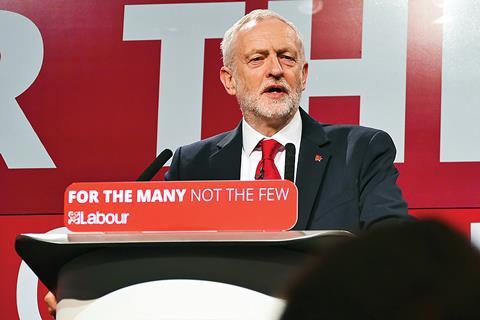
Momentum is a far-left grassroots organisation with about 31,000 members and was formed following Corbyn’s election as Labour leader. It was started and is run by Jon Lansman, who also runs the Left Futures website to “provide a platform for those campaigns that seek to realign Labour on a Left path, to restore democracy within it and to develop a programme to bring about the fundamental changes in society we have long sought”. He describes himself as a “veteran Bennite”.
The Momentum website said in January it was seeking “the election of a progressive Left Labour Party at every level and to create a mass movement for real transformative change”. Momentum is actively seeking to deselect some Labour MPs who do not show sufficient support for the ‘cause’.
Lansman, along with two allies, has just been appointed to Labour’s 39-strong National Executive Committee, strengthening Corbyn’s grip.
The conservatives need to make the case as to why capitalism is a better option
Now let’s look at what has happened in Haringey’s Northumberland Park estate, which is a microcosm of the battle between the different Labour factions. The council had agreed an ambitious plan to regenerate the estate, one of the top 5% of deprived areas in the UK, with Lendlease via a 50/50 JV for more than 5,000 homes plus civic facilities, offices and retail.
The council thought it could make a profit of £250m and increase its annual council tax and rates revenue by £13m. The prospect of Lendlease profiting from the venture, however, was too much for some and council leader Claire Kober has recently been forced to resign. She renounced “sexist, bullying and undemocratic” tactics adopted by Momentum after months of ferocious deselection battles.
As another moderate member, resigned to deselection, says: “None of the hard left are even thinking about how to get more homes built. They will just allow the situation to get worse while they wait for a Corbyn government that might never arrive. That will be their legacy to Haringey.”
While it is hard to predict how far a Corbyn government will go, reasonable assumptions might include: higher taxes both on corporates and individuals; renationalisation of railways and utilities plus any other failing businesses; an even more regulated regime for the financial sector; private sector residential rent caps; less defence spending; and a deterioration in relations with the US.
Whether this will lead to economic slowdown, significant capital flight and a return to the 1970s, when the UK was branded “the sick man of Europe” and Labour chancellor Denis Healey had to obtain an emergency bailout from the International Monetary Fund, is conjecture.
The Conservatives need to make the case as to why capitalism is a better option.
























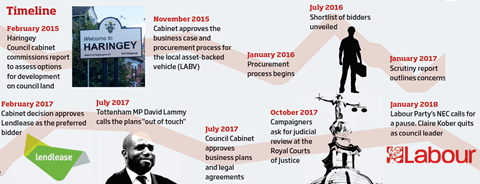
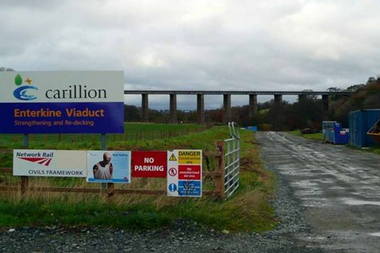
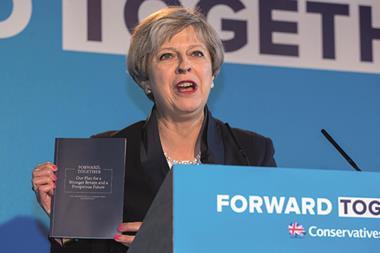
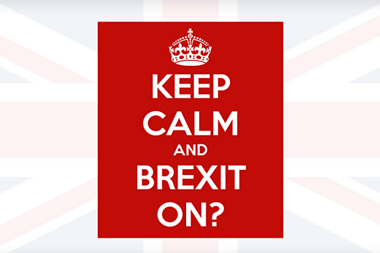



No comments yet